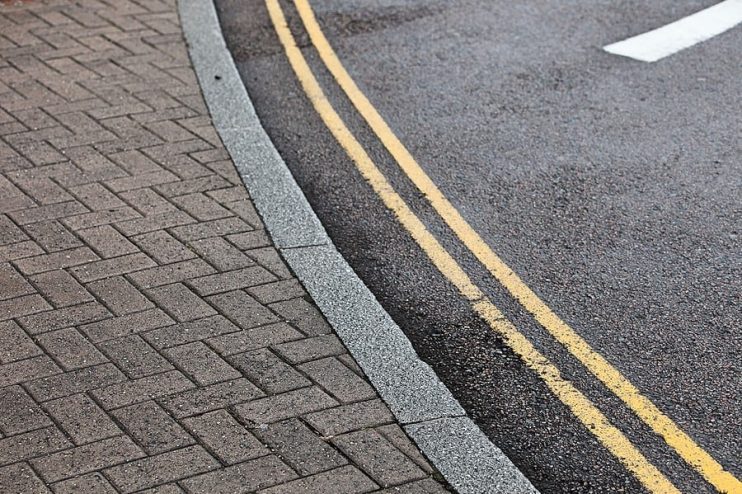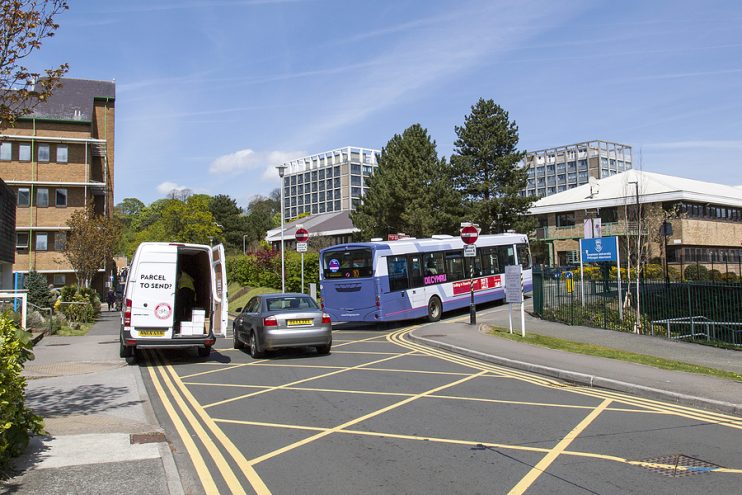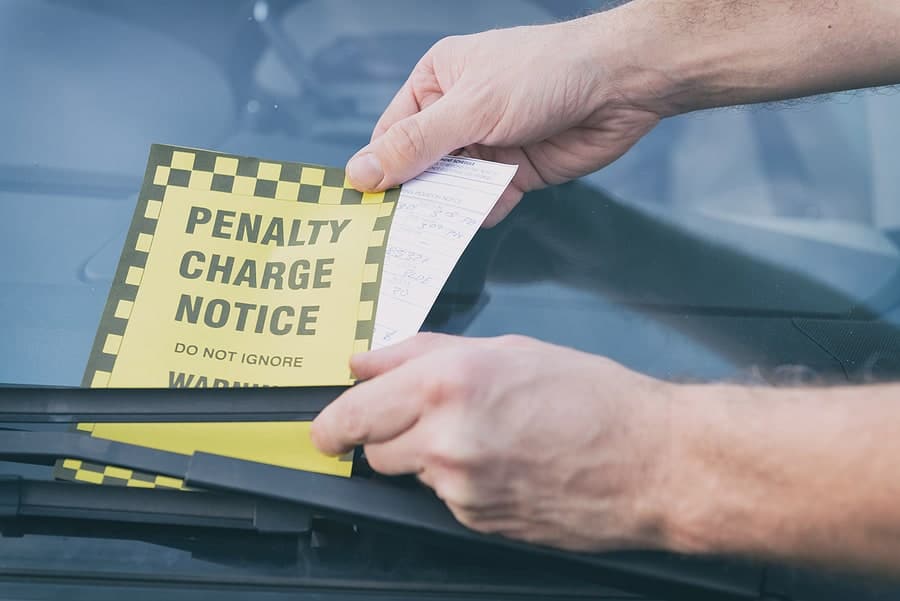
Sometimes you need to park on double yellow lines. Think this is always illegal? Think again. Most of the time you’ll find a ticket slapped on your car by a parking warden, giving you an automatic fine. However, there are some instances where parking on double yellows is actually allowed. Knowing your rights, can help you find a parking space when it’s difficult – or in an emergency – or even prevent you from having to pay a fine. So what is the actual law?
Table of contents:
- Penalties for Double Yellow Parking
- Legal Speak – What do Different Lines Mean?
- Why do we have Yellow Lines?
- And When is it OK to Park on Double Yellows?
- Sundays and Bank Holiday Exceptions
- Rules for Urban Clearways
- And Finally
Penalties for Double Yellow Parking
Park on a double yellow line without a good reason, and you can expect to get a fine. Because parking is under the jurisdiction of local authorities, there is no UK national standard for fines. However, most adhere to the same policies. Infringe on the parking rules, and you’ll be looking at a standard £70 fine, which will be reduced by 50% if you pay it in under 14 days.
Legal Speak – What do Different Lines Mean?
You’ll find several different types of lines next the pavement. Each one gives drivers different information appertaining to the parking regulations for the road. These are as follows:
- Double white lines – no parking. However, cars may stop briefly to drop off or pick up passengers for the vehicle.
- Single yellow lines – check the signposted times. You’re only prohibited from parking on single yellows during set intervals – outside of these times, it’s perfectly legal to park on these street markings.
- Double red lines – normally only found in larger cities, such as on London’s north circular. The meaning is simple. No parking at any time.
- Single red lines – are similar to single yellow lines. Check signage to find the parking rules.
- Double yellow lines – no parking at any times. Expect for special circumstances, which we’ll go on to explore…
Why do we have Yellow Lines?
We have Ernest Marples, Minister of Transport from 1959 to 1964, to thank for the implementation of the double yellow lines that are now familiar to all motorists. This legislation was introduced under the Road Traffic Act in 1960, which also introduced MOT tests and traffic wardens. These road markings were created to quickly and effectively show motorists where they could and couldn’t park at a glance.

And When is it OK to Park on Double Yellows?
As we’ve mentioned, there are certain cases when the no parking side of the double yellow lines simply doesn’t apply as you’d expect. These are those situations
At Fixed Times
Check the signage nearby. If there are zonal or seasonal restrictions, it may be the case that you can park when these do not apply. Look for time plates or zone entry signs that should give you all the details you need to know. Of course, if you cannot see any of these signs, then you need to assume that the zone is a 24/7 restricted parking zone, and you’ll be looking at a fine if you contravene these regulations.
Brief Pick Ups and Unloading
There are strict rules concerning dropping off goods from transport vehicles. Light loads are allowed to stop on the double yellows for a maximum of 20 minutes – a window that’s extended to 40 minutes for heavy goods vehicles. If you do decide to take advantage of this law, then be prepared to prove to an overzealous warden that you couldn’t park nearby, and carry the goods manually. And do remember, that you must also adhere to any specific zonal regulations or kerb dashes.
Blue Badge Holders
If you have a blue badge, then you’re permitted under the standard UK law to park for a maximum of 3 hours on double yellow lines. However, you must have the badge displayed, alongside the time you arrived, or you could be fined as a normal driver. Additionally, there are certain areas and zones, where even blue badge holders cannot park on double yellows or obstruct other thoroughfares – so make sure you do the appropriate checks.
Passenger Collection and Dropping Off
You can’t wait at the kerb, nor can you dawdle around whilst your passengers find their belongings, but under UK road law, you are allowed to drop someone off, or pick them up on double yellow lines. Make sure you’re fast though, as contravening this law or pushing the legislation to its limit could be interpreted as parking, which will end up getting you slapped with a ticket.
Obstruction of Information
This one is quite tenuous and we wouldn’t recommend relying on it – but if the lines are obscured, for instance by flood waters or heavy snow, and the signage is missing, then you may have a case to claim that you couldn’t tell that you were parking in a double yellow restricted zone. Be prepared to put up a fight, and expect some resistance if you are fined.
Sundays and Bank Holiday Exceptions

There are those that claim you can park on double yellows on those long, slow bank holiday weekends. Others will tell you Sundays are another time when you are free to do as you please. However, truth of the matter is that both statements are false. There may have been a time when wardens were so thin on the ground that you could get away with it – but we wouldn’t bank on it now.
Rules for Urban Clearways
Urban clearways are sections of road – usually on busy roads, without markings other than at the entry and exit points – where it is actually illegal to park, unless there’s an emergency. There will normally be information regarding the operational times of the clearway on the entrance signs. You are however allowed a small amount of grace time to pick up and drop off passengers as with standard yellow lines.
And Finally
Many parking dilemmas can be avoided by planning ahead, booking and arriving early. If you know you’re going to have to make a trip somewhere, check out the parking, find availability and if the area is congested – remember with the internet has an answer with rented parking spaces. Yes, there will always be costs involved, but it’s often easier to pay a bit more to avoid the hassle of a fine.

.png)